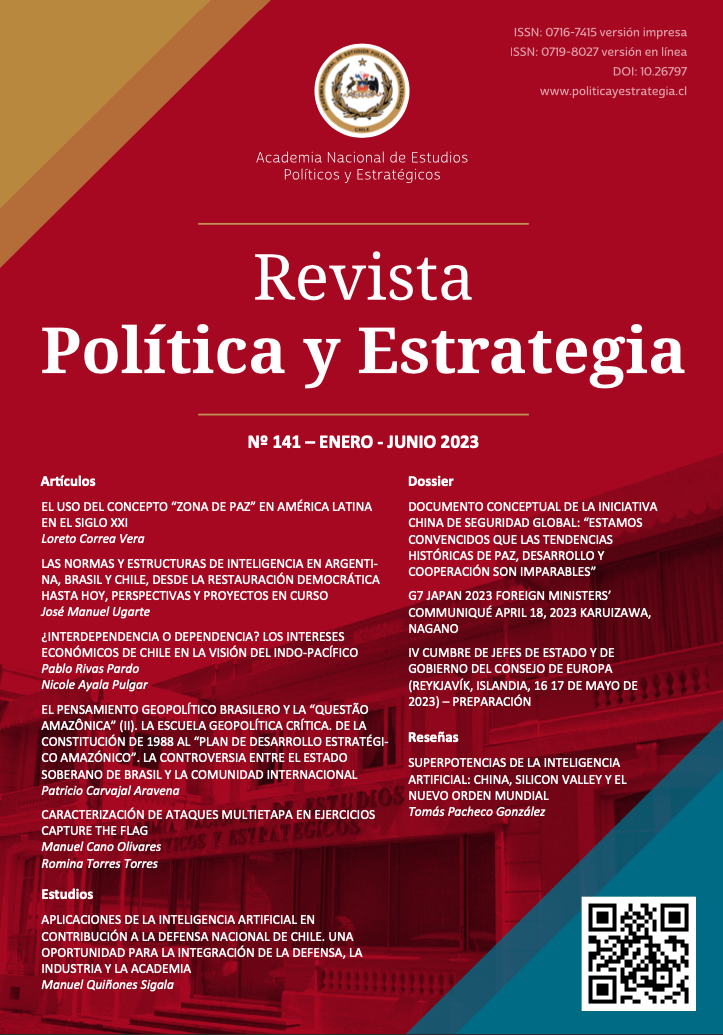INTELLIGENCE NORMS AND STRUCTURES IN ARGENTINA, BRAZIL, AND CHILE: FROM THE DEMOCRATIC RESTORATION TO TODAY, PERSPECTIVES AND ONGOING PROJECTS
Main Article Content
Abstract
A comparative analysis of intelligence standards and structures in Argentina, Brazil, and Chile shows three countries that, with differences, nevertheless exhibited significant similarities during the Cold War, a period during which they experienced years of military rule.
Such similarities began to diminish after the democratic restoration in them, showing divergent evolutions among themselves, but with significant parallelism within each country with the evolution registered in terms of civil-military relations.
While Argentina showed a strong development of civil intelligence, with insufficient controls and frequent denunciations of irregularities, and the withdrawal of military intelligence from internal security, Brazil was consolidating the military leadership of civil and military intelligence, limited in recent days. by measures adopted by a recently assumed government, which had to face a serious military crisis.
Chile, for its part, shows the slow and gradual evolution of civilian intelligence, recreated after the democratic restoration, originally tenuous, but gradually consolidating, an aspect that could be favored by ongoing projects, while military intelligence remains, in what Fundamental, strongly defense-oriented.
The three countries show the need to strengthen controls in this area, an aspect common to Latin American intelligence structures.
The paper, in addition to the comparative analysis referred to, makes proposals.
Article Details
Downloads

This work is licensed under a Creative Commons Attribution 4.0 International License.
The authors keep the copyright of their works, in the other hand, the journal Politica y Estrategia is distributed under a Creative Commons Attribution 4.0 International license